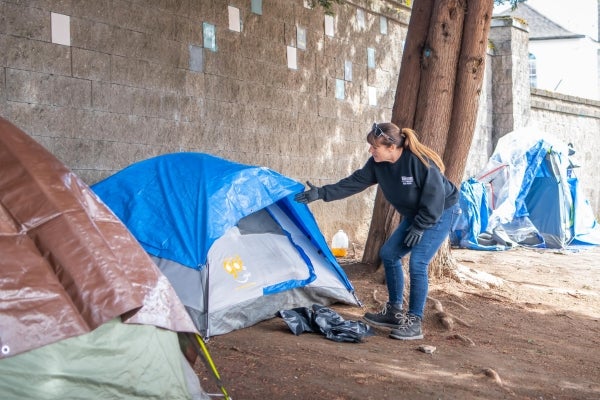City Manager Update: December 2024
December 10, 2024
2025-26 Biennial Budget adopted
On Monday, Dec. 2, the Vancouver City Council voted to adopt the 2025-26 biennial budget. The budget’s passage is a significant moment. It is the culmination of months of work, consideration and community input. The balanced budget – approximately $2.1 billion in total expenditures across all funds for the biennium – includes $1.5 billion in operating funds and $0.6 billion in capital funds.
The budget is built around the Council’s universal policy themes of community safety, equity and inclusion, and climate action. It is also guided by the core values and eight focus areas of the City’s Strategic Plan: Culture and Heritage, Transportation and Mobility, Vibrant and Distinct Neighborhoods, Economic Development, Climate and Natural Systems, High Performing Government, Housing and Human Needs, and Safe and Prepared Community.
Thank you to all in the community who shared their input during the budget’s development. The input came from various sources, such as direct engagement with community and neighborhood groups, a community survey, and an online budget engagement and prioritization tool.
We balanced the budget with targeted reductions, ongoing revenues, available cash resources and new revenue. Another feature of this budget is the new, dedicated revenue used to finance specific community and City Council priorities. A new Business and Occupation Tax on retail that will begin in 2026 will help fund the capital and operating costs of a new bridge shelter to continue addressing the homelessness crisis in Vancouver. A Cultural Access Sales Tax will be implemented to support student access to cultural events and an investment in the Vancouver Culture, Arts and Heritage Program to support arts programming in Vancouver. The budget also includes a robust capital program funded by designated resources, including an additional sales tax added by the Transportation Benefits District.
The $583 million capital program includes $440 million for projects across several service areas. Some of the funded projects include the public plaza adjacent to City Hall as part of the continued development of Waterfront Gateway, The Heights Loop and Plaza, major street projects, parks and trail development, investment in police and fire facilities, and utility projects that include a PFAS treatment system.
Explore the full budget and an interactive dashboard of capital projects. The adopted budget is effective as of Jan. 1, 2025.
Opening emergency winter shelter

The official start of the winter season is still days away, but we’re already experiencing winter weather and temperatures. To help preserve life and safety when unhoused community members are most vulnerable to the elements, the City is offering select City-owned properties to the regional Severe Weather Shelter program.
Vancouver’s new nightly winter and severe weather shelters – launched under the City’s Homeless Emergency Declaration made in Nov. 2023 – are opening, in part, after experiencing a shortage of shelter space to house people during winter storms in early 2024, and as an emergency response to the immediate need for increased shelter capacity.
Adding shelter capacity is a critical part of the City’s ongoing homelessness emergency response. We need to increase our shelter capacity as rapidly as possible to save lives, especially given the weather that we’ll experience in the months ahead.
These facilities will be open Dec. 14 through March 2025 to provide critical support and resources for individuals experiencing homelessness. Learn more about our winter and severe weather shelters.
Future long-term shelter solution
The City is working to open a bridge shelter by mid-2026. The facility will be a place where those experiencing homelessness can stay as they “bridge” the space between living outside and the next step on their journey to permanent housing. Plans for this space include adding capacity to provide severe weather shelter. Service provider Do Good Multnomah will be the 24/7 on-site operator of the facility, offering day-to-day support and wraparound services to assist residents as they work to end their homelessness.


